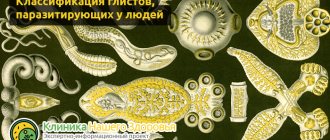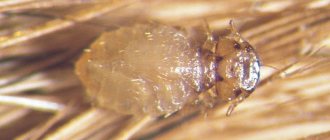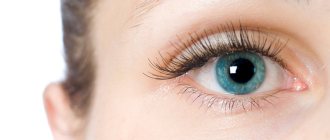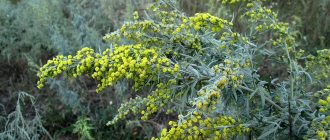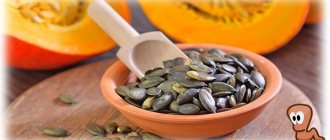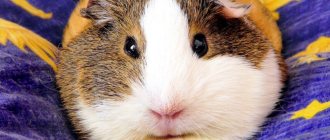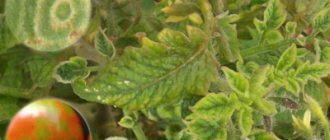Ascariasis is a parasitic disease caused by the ingestion of the eggs of the roundworms Ascaris (Ascaris lumbricoides). This is the most common type of helminthiasis, most often affecting children, as well as gardeners who work a lot with the soil.
Antibodies to Ascaris IgG - an immunological study that allows you to quantify specific IgG antibodies to the Ascaris lumbricoides allergen, produced by the immune system due to infection with the causative agent of ascariasis. Most often, helminth eggs enter the body due to human interaction with the earth, as well as eating dirty vegetables and fruits.
Young children are the most common carriers of the infection, as they often play in the sandbox, in the playgrounds. Parasite eggs can also be found in greens, vegetables and berries if they are consumed without first rinsing with water.
After penetration into the body, helminth eggs are transformed into larvae that enter the bloodstream through the intestinal walls. They can be found in the liver, lungs and bronchi. With a secondary infection with roundworms, adult helminths are formed in the intestines, which themselves can lay eggs.
What are antibodies to roundworm
Antibodies are an indicator of the presence of ascaris in the body. If infection with roundworms occurs, the immune system begins to produce Ig antibodies (they can be of class (M) and (G)) to fight the parasite.
Analyzes for the detection of antibodies allow you to find out the stage, the intensity of infection. This allows you to choose treatment at an early stage of the disease and prevent its development to a chronic form.

The most reliable test for detecting antibodies is blood ELISA. In the first two weeks after infection, the body begins to produce IgG antibodies.
Symptoms
Unfortunately, a disease such as ascariasis is very difficult to diagnose in the early stages, because at the beginning of its development, no obvious symptoms are observed. After 10-15 days, roundworms enter the patient's lungs, then the patient may be tormented by a small but obsessive cough, and the following symptoms are also normal:
- temperature increase;
- allergic rashes of an unknown nature;
- a sharp decrease in body weight.
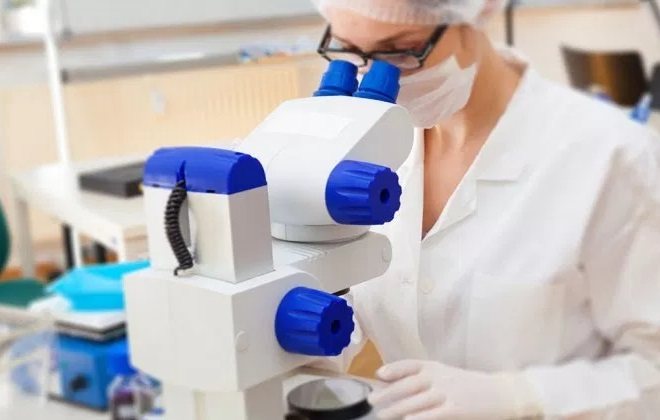

At more advanced stages, a person may have difficulties with the work of the gastrointestinal tract (bowel disorders, or, conversely, severe constipation). It is extremely important to diagnose ascaris infection in time, because the development of the disease is dangerous with many complications. The main pathologies to the development of which ascariasis leads include:
- severe bowel obstruction;
- appendicitis;
- inflammation of the biliary tract;
- various lung diseases;
- kidney disease.
That is why it is so important to conduct a number of studies to identify the development of ascariasis in the early stages. Below we will consider the main methods of diagnosis, and what is the decoding of a blood test for antibodies to ascaris antigens.
The body cannot ignore the fact of the presence of parasites in the body and gives signals indicating infection. The most obvious symptoms of ascariasis are the following:
- frequent headaches;
- sleep problems;
- weakness;
- dizziness;
- fast and unreasonable fatigue;
- distraction of attention;
- abdominal pain.
Another sign of the presence of parasites in the body is a change in weight: a person, having an increased appetite, noticeably loses weight. Such manifestations may be signals of another disease, but it will not be superfluous to be tested for ascariasis. The early stage of the disease is difficult to diagnose. At first, there are no symptoms.
After a few weeks, such unpleasant symptoms appear:
- the patient has the appearance of a cough against the background of health, there are no symptoms of a cold, the cough itself is more like a cough;
- there is an increase in temperature to subfebrile;
- a rash appears on the skin, it may be itchy;
- there is an aversion to some products that did not cause a negative attitude earlier.
Some patients note changes in the digestive system: bloating, diarrhea or constipation, gas formation. Ascaris, circulating through the bloodstream, can enter any organ, settle there and disrupt its work.
Ascariasis is dangerous for its complications. Most often it is intestinal obstruction, inflammatory conditions in tissues and organs.
How is the test for IgG antibodies to ascaris
There are no particular differences from the usual donation of blood. The patient is forbidden to eat 10 hours before the procedure, you can drink water without gas, it is also better to refuse to brush your teeth with toothpaste.
A couple of days before delivery, you need to follow a diet, excluding spicy, salty, smoked and fatty foods from the diet. It is also better to give up the use of alcoholic beverages, tobacco products, taking any medications.
If laboratory tests coincide with a feast, it is better to postpone them for another day - this will allow you to get a reliable result, without distortion.
Blood is taken from the patient from a vein, mixed with ascaris antigens. When mixing all the reagents, the color of the studied biomaterial changes. Hue indicates a reaction that has occurred with the anti-antibody agents. Next, spectral analysis is applied.
The reliability of this study is extremely high accuracy - 95%. For the most accurate results, ELISA is carried out in parallel with a general blood test, PCR of feces.
Research process
Samples for immunoglobulin analysis are taken before eleven o'clock in the afternoon. Blood is taken from a vein at the elbow. Serum and antigens are placed in the wells of a special plate. A clear liquid is added to the solution, which changes color if a specific enzyme is detected, which is formed when the antibody reacts with the antigen.
After the study, the results are deciphered. The type and amount of immunoglobulins present in the blood are taken into account. Comparison of these indicators allows you to determine the stages of development of infection. There are values of indicators of the content of immunoglobulins for a healthy person. The norm for each class is determined:
- IgA average 2.5 g / l, minimum 0.7, maximum 4 g / l;
- IgD 4.2, coefficient from 1.2 to 4.1 - which means the result is doubtful.
Analysis decoding


Drits Irina Alexandrovna. Parasitologist
Helminthiasis can lead to numerous health problems, shortening life by 15-25 years. Many parasites are extremely difficult to detect. They can be anywhere - in the blood, intestines, lungs, heart, brain. Symptoms of helminthic invasion can be confused with ARVI, gastrointestinal diseases and others. The main mistake in such cases is procrastination! If you have any suspicions about the presence of parasites, then you need to see a specialist. More information about modern methods of treating helminthiasis is described in this interview with a doctor... If we talk about drugs and self-treatment, then from the most common helminths (ascaris, pinworms, tapeworms), this antiparasitic complex.
The results are interpreted based on the IgG and IgM indicators:
- the absence of these markers indicates that a person has never been infested with roundworms, he has no immunity to this parasite;
- detection of only IgG is a sign of the chronic course of the invasion, or the person has already suffered the disease, recovered from it. The body produces these antibodies to roundworms for some time after the cure;
- if only IgM or IgM + IgG are found - a sign of an acute course of the disease. In this case, urgent treatment is required.
ELISA results can be:
- positive;
- negative;
- dubious.
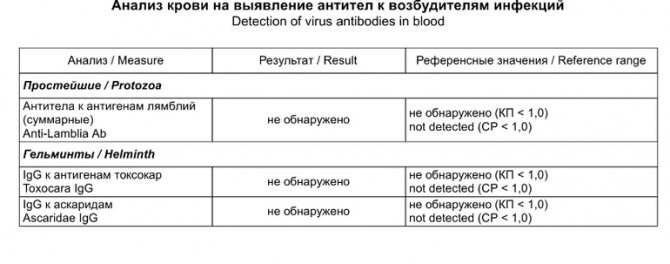

Ascaris in adults: symptoms (signs) and treatment
A person is never left alone - with him there is always about three to four kilograms of bacteria, one way or another affecting and changing our life activity. However, in addition to useful roommates, a person is sometimes accompanied by various pathogenic organisms and parasites. One common form will be discussed here - roundworms. No one is immune from infection with these worms, so you may be interested in ascariasis in adults, the symptoms and treatment of this ailment.


- Infection routes
- Ascariasis symptoms
- Complications caused by ascaris
- Diagnosis of ascariasis
- Treatment of ascariasis
- Folk remedies
- Drug treatment
- Nutritional recommendations for ascaris
- Prevention of ascariasis
Infection routes
Roundworms, they are also Ascaris lumbricoides, belong to nematodes, or roundworms.
The main difference between roundworms and other, more common worms, and at the same time the greatest danger lies in the fact that roundworms have a very difficult migration path through the body. While the same pinworms parasitize exclusively in the intestines, roundworms can penetrate into the blood vessels, lungs, liver, right atrium, inferior vena cava and even the brain.
Ascaris infection occurs in only one way - a person must swallow mature ascaris eggs (fecal-oral type of transmission). This usually occurs when ingested dirty fruits and vegetables.
Being in the human body, roundworms undergo two phases:
- migration, it is early;
- intestinal, it is late.
From ripe eggs swallowed by humans, larvae emerge. They penetrate the wall of the small intestine and end up in the bloodstream, through which they migrate to the lungs and liver. However, history knows cases of finding roundworms in many other places, up to the eyeball.
The larvae feed on serum, later, when their need for oxygen increases, they switch to red blood cells, which are known to contain a large amount of this gas. It is this need that explains their desire to get into the lungs, where the larva, moving along the bronchi, enters the oropharynx, where it is swallowed and re-enters the gastrointestinal tract, returning to the small intestine. Here the migration stage ends and the intestinal stage begins.
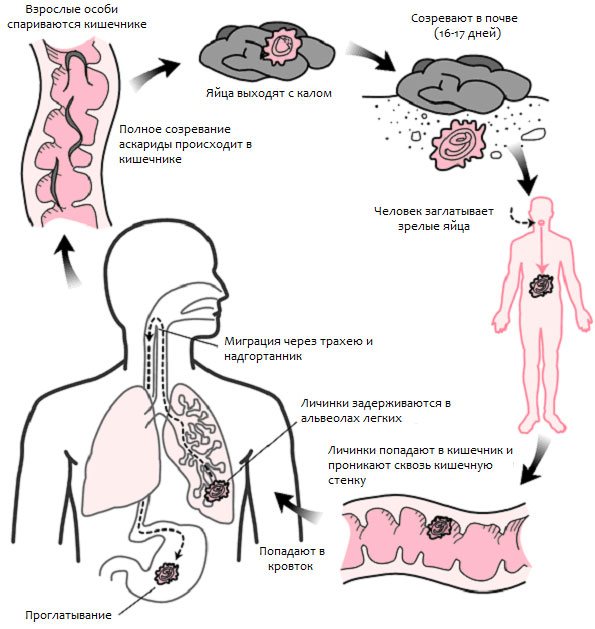

After about three months in the intestine, the larva becomes sexually mature and gives birth to offspring. A person in this stage is not dangerous for others, since the eggs must ripen within one month, while being in the soil.
Ascaris is characterized by some freedom in the life cycle. Some larvae remain in the liver, where they are destroyed by protective enzymes. This will be accompanied by jaundice and severe pain. In addition, sometimes parasites will come out with a wet cough with copious phlegm.
Many believe that after one life cycle, roundworms leave the host. This is not true. The difficult path is just a way to evenly distribute the larvae throughout the body. The worm itself lives for about a year and a half, and all this time it harms its owner.
Ascariasis symptoms
Roundworms do not manifest themselves immediately - two months may pass from infection with eggs to the first symptoms. The symptomatology of ascariasis in adults is somewhat different from that in children and significantly depends on the phase of the disease. In the migration phase, pathological signs are usually insignificant, however, in severe forms, the disease will manifest itself with the following clinical symptoms:
- A temperature rise of 3 degrees or more from normal;
- A characteristic blistering rash on the skin of the trunk, significantly worsening on the hands and feet. This rash feels similar to hives;
- Enlarged liver and concomitant discomfort in the right hypochondrium. This symptom indicates the presence of parasites in the liver;
- Pain in the heart, subcutaneous hemorrhage and various manifestations of coronary artery disease in the heart. These pathologies manifest themselves when the parasite enters the bloodstream and further into the heart.
- Diarrhea with bloody clots and severe salivation may also indicate liver damage;
- Severe depression, prolonged migraines, dizziness, convulsions and epileptic-like seizures are a sure sign of ascaris damage to the brain. If the parasites are close to the optic or auditory nerve, impairment of vision or hearing, respectively, is added to the overpowered symptoms;
- Transient pneumonitis, or Loeffler's syndrome. It manifests as chest pain, coughing up phlegm, shortness of breath, and wheezing on auscultation. Also, this phase is characterized by exudative infiltrates noticeable on X-ray images, which tend to change their location (for this feature, they are called "volatile infiltrates"). This symptom is caused by the harmful activity of ascaris larvae in the lungs;
- Increased sweating;
- Malaise, fatigue, weakness.


The intestinal phase, or chronic ascariasis, has its own symptoms:
- gastrointestinal syndrome, consisting of abdominal pain, stool disorders, loss of appetite, nausea and vomiting in the morning;
- general malaise and decreased performance.
All these signs depend on the general infection of the patient and the exact location of the ascaris, so their severity may vary.
Complications caused by ascaris
Like any parasites, roundworms live off the host's body, consuming its blood and leaving in return the results of their vital activity, which are very poorly tolerated by humans. Worms increase the production of enterokinase and alkaline phosphatase, which leads to digestive upset and intestinal pain.
Roundworms feed on erythrocytes, which can ultimately lead to a decrease in hematocrit, leukocytosis and anemia.
In addition, when introduced into the mucous membranes, roundworms injure them and cause aching pain. At the terminal degrees of infection, the patient may even be fatal due to blockage of the airways. Therefore, the diagnosis and treatment of ascariasis should in no case be postponed until later, as this can lead to unpleasant complications, such as:
- intestinal obstruction due to blockage by worms and decreased bowel tone;
- penetration of worms into the bile ducts, which causes jaundice and severe pain, which cannot be stopped even by narcotic pain relievers;
- the penetration of parasites into the ducts of the pancreas, which results in acute pancreatitis;
- a concomitant bacterial infection that can cause liver abscesses and purulent cholangitis. These pathologies, in turn, lead to peritonitis and sepsis;
- aggravation of other diseases and decreased immunity.
Diagnosis of ascariasis
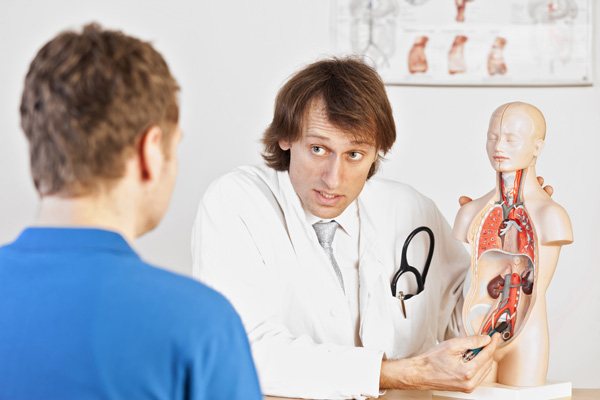

There are the following diagnostic options for ascariasis:
- X-ray examination of the chest organs: volatile infiltrates are visible;
- X-ray examination of the intestine: if the worms are in the intestine of the same sex, they can be detected by passing X-ray with contrast;
- coprogram: ascaris eggs are found;
- sputum examination for larvae;
- immunological reactions: specific antibodies are detected;
- blood test: shift of the leukocyte formula to the right, eosinophilia;
All of these methods only indirectly confirm the invasion. The final diagnosis of ascariasis is made only when eggs, larvae, or adults are found in the feces.
Treatment of ascariasis
Folk remedies
Traditional medicine knows many effective methods of how to get rid of roundworm. For the most part, these are herbal decoctions and medicinal preparations. Helps well:
- juniper;
- tansy;
- St. John's wort and other herbs.
Drug treatment
A doctor treating ascariasis and helminthiasis in general is called a parasitologist. At the slightest suspicion of ascariasis, you need to contact him as soon as possible. It should be noted that usually the treatment of ascariasis is carried out not only for the applicant, but also for all members of his family in order to prevent re-infection later.
Since each drug has many trade names in addition to generics, only the most common ones will be listed here:
- Vermakar, Vermox, Telmox, Vormin - based on mebendazole. Take 100 mg for 3 days;
- Kombantrin, Pirantela pamoat, Nemocid, Helmintox - based on pyrantel. Take 10 mg / kg body weight once a day.
- Nemozol, Zentel, Sanoxal, Gelmodol-VM - based on albendazole. It is taken once at a dosage of 400 mg.
- Decaris - based on levamisole. It is taken once at a dosage of 150 mg.
Anthelmintic therapy is recommended with the support of additional funds, such as sorbents (activated carbon, enterosgel, polyphepan), hepatoprotectors, immunomodulatory drugs.
The doctor may prescribe a second course of anthelmintic drugs a month after the previous one, since all these substances affect only adult worms, without affecting the eggs or larvae. Since the therapy is aimed at the destruction of individuals, after the course of treatment, the patient is prescribed cleansing enemas, which effectively remove already dead worms from the intestines. Laxatives are sometimes prescribed for the same purpose.
You will be surprised how many parasites will come out if you drink a glass of ordinary in the morning ...
The parasites will leave the body in 3 days! You just need to drink on an empty stomach ...
Nutritional recommendations for ascaris
Like any other disease associated with the gastrointestinal tract, the treatment regimen for ascariasis requires a strict diet. Competent nutrition for ascariasis will improve the well-being of the person being treated and accelerate his recovery. The main provisions of the diet for ascariasis are as follows:
- Meals should be fractional (at least five times a day), and the time intervals between meals cannot be too long.
- It will be helpful to drink plenty of fluids. The soup will be an ideal addition to your diet.
- Consumed products must be thoroughly washed, and ideally also thermally processed;
- Products that can spur the development of pathogenic microflora in the body should be excluded. These include pasteurized food, flour and sugar;
- It is necessary to refuse food that can cause allergies, since ascariasis is already capable of provoking allergic reactions. Therefore, you will have to refrain from chocolate, seafood, citrus fruits, peanuts and carbonated drinks;
- The inclusion of acidic foods in the diet will have a positive effect on the dynamics of the disease, since parasites require an alkaline environment to exist. Berries, fruits, and some vegetables such as onions, garlic, and horseradish will be helpful.


When compiling a menu, you should give preference to certain categories of food. These include:
- White bread;
- marmalade;
- rosehip decoction;
- lean meat;
- mashed porridge;
- soft fruits and berries.
Prevention of ascariasis
Preventing worms is much easier than treating them, and the most important thing is that it is simple, understandable and does not require anything supernatural from the patient. To remove worms, you just need to adhere to the following rules:
- Compliance with the rules of hygiene. Since roundworms are transmitted by the fecal-oral route, you need to monitor the cleanliness of your hands and food consumed inside.
- In no case should you lick your fingers and bite your nails. It was with this addiction that most of the reported cases of ascariasis began.
- Drink exclusively boiled water, because the raw can contain eggs of worms. It should be borne in mind that the eggs of worms can remain viable for ten years and are resistant to freezing, but very easily destroyed by high temperatures.
- Keep the places where children play clean. Playgrounds must be kept clean and free of feces and other debris.
With the observance of these rules, you can be calm and not afraid of infection with roundworms. Based on all these rules, we can conclude that roundworms, despite all their menacing and danger, the disease is quite curable, if you do not delay it and, at the first suspicion, consult a specialized doctor. The main thing is only to monitor your own health, and nothing more will be required from the patient.
A positive test result for antibodies to roundworm
A positive analysis indicates that a person is currently infected with roundworms or was previously infected. In such cases, to adjust the treatment and view the dynamics of invasion, it is necessary to re-pass the examination.
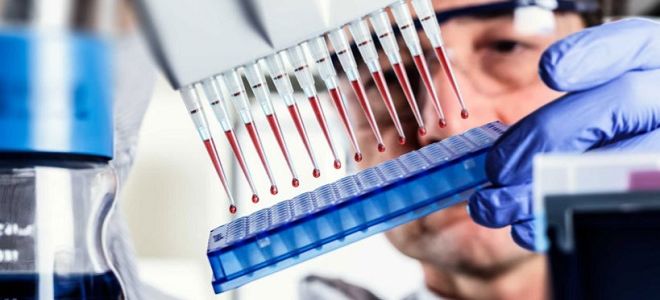

In some cases, they have a false positive result - different types of worms can produce the same antigens. If the results are positive, all family members and people in contact with the patient should also be examined and tested.
Negative results indicate the absence of invasion; it may be at an insufficient level for the accumulation of the required amount of antibodies. This result occurs in people with weak immunity or when the disease is at a stage that does not allow detecting antibody levels.
Questionable results are considered normal, but near positive results. In this case, ELISA is repeated two weeks later. If the results are identical, they are considered negative.
About the disease
There are several types of roundworms that can live in the human body, but most of them are obligatory (obligatory) for animals, and do not reach sexual maturity in humans. The exception is Ascaris lumbricoides - human ascaris, it goes through all stages of its development cycle in the body of the final owner, causing significant harm to his health. The female of this helminth is capable of growing up to half a meter in length, significantly exceeding the size of the male. She can lay two hundred or more eggs per day.
The risk of infection with ascaris is greater in people living in rural areas and summer residents who fertilize their gardens with feces from cesspools. High childhood morbidity is the result of immature immunity, insufficient parental control, and lack of personal hygiene skills.
Ascaris eggs fall into a person's mouth with unwashed vegetables or berries from the garden, raw water, and dirty hands. The helminth lives for about a year, going through 2 main stages in its life cycle:
- Larval period - in the small intestine of a person, larvae hatch from eggs, which drill a passage to the blood vessels and rush towards the lungs with blood flow (through the portal vein system, right chambers of the heart, pulmonary trunk).Here they feed on blood, damage lung tissue, cause reflex coughing fits with phlegm, during which they are thrown down the throat and swallowed again. This period lasts for about a couple of weeks.
- Intestinal stage - after repeated swallowing of Ascaris lumbrico>
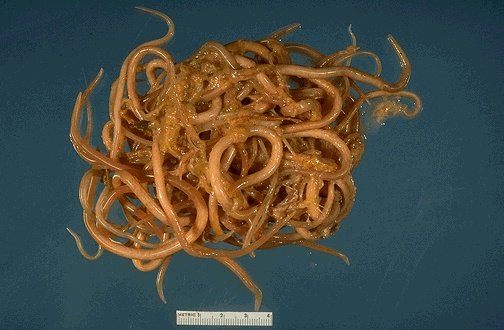

How to be treated
For the treatment of ascariasis, the doctor selects anthelmintic drugs. The treatment is comprehensive, since it is required to eliminate the consequences of the vital activity of the parasite, remove toxins from the body, and exclude the development of relapse.
The most effective anthelmintics are:
- Nemozole;
- Pirantel;
- Nourished;
- Piperazine;
- Vermox.
After the first course of treatment, taking anthelmintic drugs must be repeated two weeks later. This is a prerequisite to prevent the development of relapse.
Reception of anthelmintic drugs is accompanied by a course:
- vitamin complexes;
- immunostimulants;
- sorbents;
- sedatives;
- sometimes diet.
Ascariasis is considered a serious disease that takes a long time to heal. The best way to protect yourself from invasion is to take preventive measures. Of course, prevention does not provide complete protection against infection, but it significantly reduces the risks of its occurrence.
If negative symptoms appear, it is better to consult a doctor for medical research and selection of a treatment method. Self-medication can not only worsen well-being, but also complicate the process of diagnosis and further treatment.
You can defeat parasites!
Antiparasitic complex® - Reliable and safe disposal of parasites in 21 days!
- The composition includes only natural ingredients;
- Does not cause side effects;
- Absolutely safe;
- Protects liver, heart, lungs, stomach, skin from parasites;
- It removes the waste products of parasites from the body.
- Effectively destroys most types of helminths in 21 days.
There is a preferential program now for free packaging. Read expert opinion.

